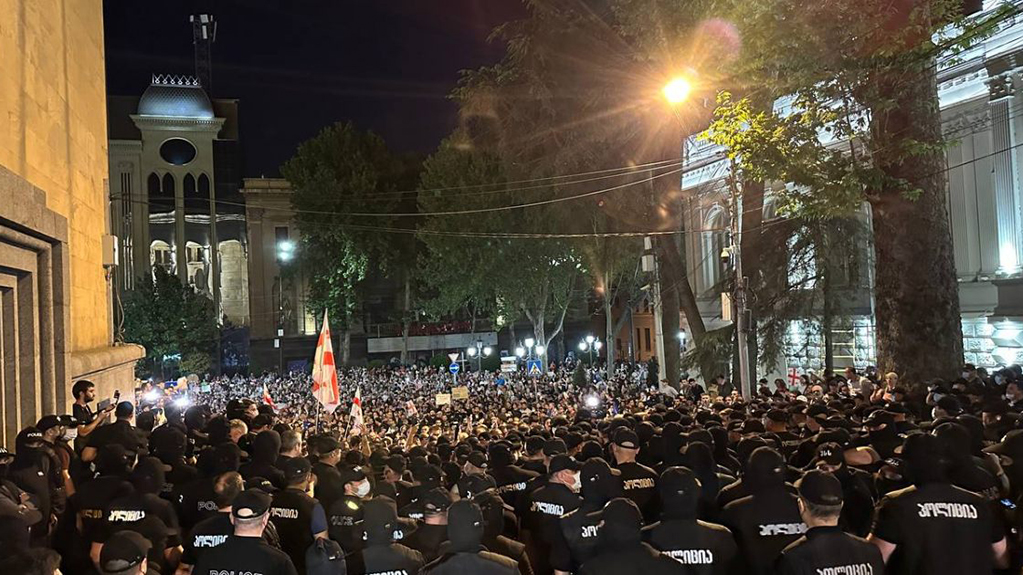Employees of the Special Tasks Department of Internal Affairs Ministry used pepper spray against citizens gathered at the ongoing protest rally near the Parliament in Tbilisi, resulting in several injuries.
News
Representatives of various units of the Internal Affairs Ministry, mobilized in large numbers near the legislative body, are forcefully keeping citizens away from the entrances of the parliament, from which deputies are supposed to leave. Footage shows law enforcement officers physically assaulting and detaining rally participants. A water jet machine is also mobilized on the spot.
The Internal Affairs Ministry announced that rally participants confronted law enforcement officers verbally and physically, throwing various objects in their direction. The Ministry also explains that "special means prescribed by law" were used to restore law and order.
"We call on political leaders, organizers, and participants of the rally not to exceed the norms of assembly and demonstration established by law. Each violation of the law will be met with an appropriate legal response," stated the Ministry of Internal Affairs.
Today, April 30, the ruling Georgian Dream passed the second reading of the Russian Law during the plenary session of Parliament. Deputies discussed only 3 out of 11 items today. The discussion of the Russian Law will continue tomorrow, and it is likely that a vote will take place tomorrow.
Demonstrations against the Russian Law have been held in Tbilisi every day since April 15. The organizers of these demonstrations, which have drawn thousands of participants, are mainly students and civil activists.















